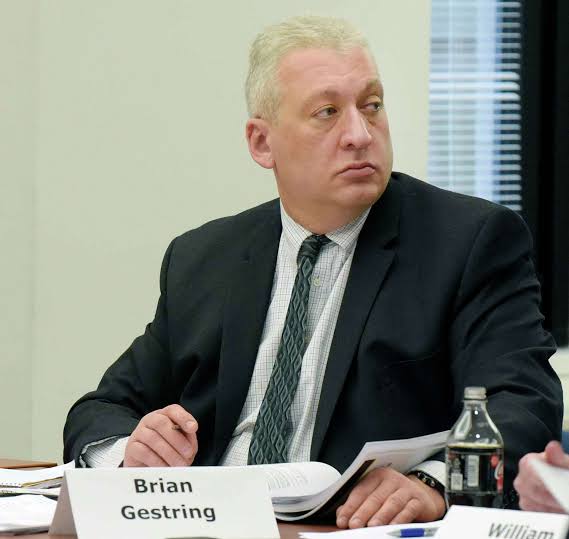ALBANY — Eight years after Gina L. Bianchi was forced out of her senior legal role at New York’s Division of Criminal Justice Services (DCJS), the state has agreed to pay $750,000 to settle two lawsuits that alleged she was unlawfully punished for testifying in a workplace sexual harassment investigation.
The settlement comes after a prolonged legal fight by Bianchi, a career state employee who rose through the ranks over nearly three decades, only to be demoted in 2017 following her cooperation with an inspector general’s probe into misconduct at the agency.
The case reveals a troubling chain of events: a whistleblower who cooperated in good faith, senior officials accused of retaliation, and a state agency that struggled to contain a growing scandal involving one of its top forensic officials.

The state’s decision to settle comes with no admission of wrongdoing, but the size of the payout — and the public scrutiny it brings — signals institutional failings within DCJS during a period when New York’s political leadership was already grappling with broader misconduct scandals.
According to court records, Bianchi was working as a senior attorney at DCJS when she voluntarily testified in an investigation launched by the New York State Inspector General’s Office. The probe focused on Brian J. Gestring, the then-director of forensic services, who had allegedly harassed and threatened multiple female employees.
Though Bianchi was not a complainant in the original allegations, she was one of several insiders who stepped forward with corroborating information. In return, she claimed, agency leadership retaliated.
She was demoted from her senior post on December 5, 2017, hours after former DCJS Commissioner Michael C. Green interrogated her over her statements to investigators.
The state’s rationale, as outlined in legal filings, was that Bianchi had shared “unverified” or “extraneous” details during her testimony. But Bianchi’s legal team countered that this was simply a pretext to silence her and discourage others from coming forward.

Bianchi filed twin lawsuits — one in state Supreme Court and another in federal court — alleging retaliation in violation of state labor laws and federal civil rights statutes. In 2023, a federal judge upheld the core claims against Green and others, rejecting the state’s motion to dismiss and allowing the case to proceed toward trial.
The final settlement includes $500,000 for Bianchi, with allocations for lost wages, physical and emotional distress, and legal and medical expenses. An additional $250,000 goes to her attorneys, John W. Bailey and Crystal R. Peck of Albany.
According to documents reviewed by the Times Union, Bianchi lost $44,000 in annual pay when she was reassigned to a lower-ranked position after her firing. Though she remained within the agency, her senior status and role were stripped.
“She committed to see this through to the end,” said Bailey. “The state retaliated against her because she testified to the truth. They should think twice before they violate someone’s civil rights.”
At the center of the case is Brian Gestring, a forensic scientist and former NYPD expert, who served as the head of DCJS’s forensic division from 2012 to 2018. According to a confidential report by the state inspector general, Gestring engaged in “years of sexual harassment” and threatened female employees with physical violence.
Despite early red flags, including two counseling memos just months into his tenure, DCJS took no substantial action until the inspector general launched a formal investigation in 2017.
Bianchi alleged that when she attempted to alert Green to serious allegations against Gestring, he told her to “stay out of it.” When she testified anyway, Green reportedly used that testimony to justify her termination, saying it revealed a “lack of trustworthiness.”
The federal judge who reviewed the case, however, disagreed. In a 2023 opinion, the court noted that Green’s rationale appeared inconsistent, particularly since some of Bianchi’s testimony had been verified by others.
“He said it was wrong for her not to report workplace threats after explicitly telling her to stay out of it,” the judge wrote. “That contradiction undermines the justification for summary judgment.”
Gestring was terminated in March 2018 for unrelated reasons, according to state officials. But internal records later revealed that his dismissal closely followed investigative reporting and media attention that shed light on the alleged cover-up.
Bianchi’s case is not the only one involving retaliation at DCJS. Kimberly Schiavone, a former forensic services manager at the agency, also filed a federal complaint in 2017 alleging that she had been harassed and later demoted for speaking out against Gestring.
She was transferred to a storage closet–turned–office and given fewer responsibilities, despite having worked at the agency for over a decade. Her case was settled confidentially in 2020.
Neither Governor Andrew Cuomo nor his successor Kathy Hochul has commented publicly on Bianchi’s settlement. However, Hochul requested Green’s resignation shortly after taking office in 2021, without stating a specific reason.
The inspector general’s office also came under scrutiny after revelations that it had shared witness testimony — including Bianchi’s — with DCJS leadership. Critics say this may have made it easier for senior officials to retaliate against whistleblowers.

For Bianchi, the consequences were both professional and personal. In 2019, she told a legislative hearing that the incident had “destroyed” her career and left her with a stigma she may never fully escape.
“No lawmaker followed up on my case,” she said at the time.
Her story has since become a touchstone for whistleblower rights within New York State government. Advocates hope the recent settlement signals a growing willingness by the state to acknowledge and rectify past mistreatment.
Still, the Bianchi case leaves unanswered questions about oversight, accountability, and the protection of public employees who speak out against abuse.
As her attorney, John Bailey, put it: “The government needs to do more than write policies. It needs to live by them.”





